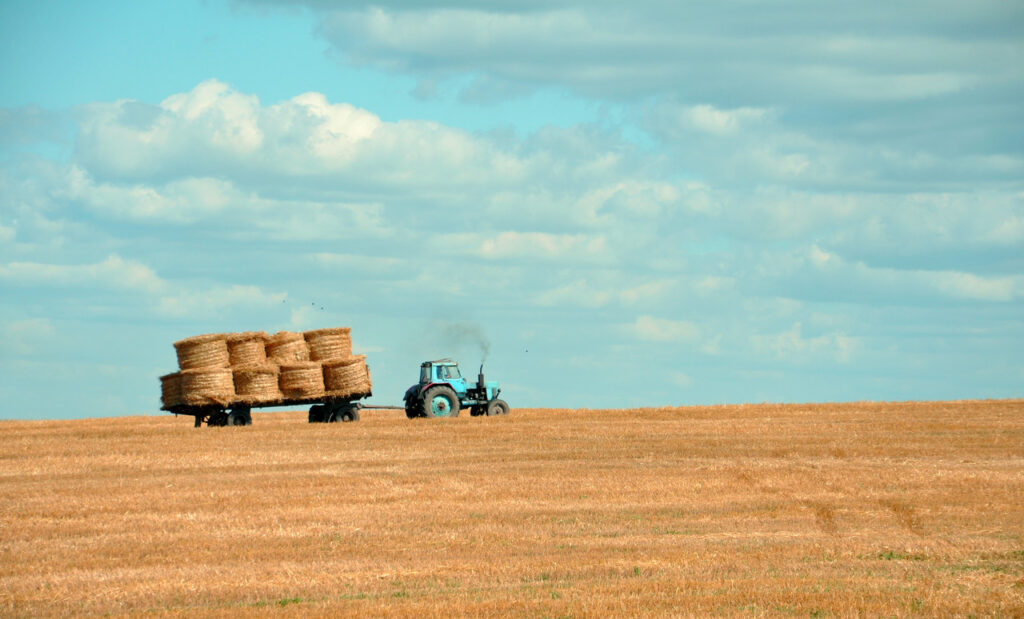Infrastructure has a profound impact on farm evaluations by not only improving
operational efficiency and productivity but also by playing a crucial role in
determining the overall value and potential of agricultural properties. Evaluating the quality and functionality of farm infrastructure is a key factor in gauging the market value of farms, considering aspects such as
land utilization efficiency, resilience to natural disasters, and compliance with regulations. Each type of infrastructure, from irrigation systems to storage facilities, contributes to the success and
sustainability of farming operations. Understanding how infrastructure influences farm evaluations is essential for making informed decisions about
farm investments and long-term viability in the agricultural sector.
Key Takeaways
- Infrastructure affects farm assessments by influencing operational efficiency and productivity.
- Evaluation of infrastructure condition is crucial for accurate property valuation.
- Functional and compliant infrastructure enhances farm value and marketability.
- Resilient infrastructure withstands risks and natural disasters, impacting property assessments.
- Well-designed infrastructure optimizes land use efficiency and overall farm performance.
Importance of Farm Infrastructure
Certainly, the
importance of farm infrastructure cannot be overstated in its role in
optimizing agricultural operations and
ensuring sustainable productivity. Farm infrastructure encompasses a wide range of physical assets and facilities that are essential for the
efficient functioning of a farm. These include buildings, fences, water systems, storage facilities, equipment, and machinery. Properly planned and well-maintained infrastructure can greatly enhance the overall productivity and profitability of a farm.
One of the key benefits of farm infrastructure is its ability to streamline various farming activities. Well-designed infrastructure can help in organizing the layout of the farm, reducing the time and effort required to move equipment and materials between different locations. This, in turn, can lead to
increased efficiency in farm operations, allowing tasks to be completed in a timely manner. Additionally, farm infrastructure plays an important role in
promoting the health and well-being of livestock by providing comfortable housing, clean water, and adequate feed storage. Ultimately, investing in farm infrastructure is essential for ensuring the
long-term success and sustainability of agricultural operations.
Types of Farm Infrastructure
Farm infrastructure comprises a diverse array of physical assets and facilities essential for the operational efficiency and success of agricultural enterprises. The types of farm infrastructure can vary greatly depending on the scale and focus of the farming operation. Some common types of farm infrastructure include:
- Buildings: These can include barns, silos, storage sheds, greenhouses, and processing facilities.
- Fencing: Fencing is important for delineating property boundaries, separating livestock, and protecting crops from wildlife.
- Irrigation Systems: Efficient irrigation systems such as drip irrigation or center pivot systems are necessary for maintaining crop health and maximizing yields.
- Equipment: Tractors, plows, harvesters, and other machinery are essential for various farming tasks, from planting to harvesting.
Each type of farm infrastructure plays a critical role in ensuring the smooth functioning of the agricultural operation and contributes to its overall productivity and profitability.
Role of Infrastructure in Farm Value
Infrastructure on farms greatly influences the overall valuation of agricultural properties due to its direct impact on
operational efficiency and
productivity. Well-designed and maintained infrastructure can enhance the farm’s functionality, making daily operations smoother and more cost-effective. Here is a breakdown of how different types of farm infrastructure contribute to the value of the property:
| Type of Infrastructure |
Impact on Farm Value |
| Irrigation Systems |
Increases productivity by ensuring consistent water supply to crops. |
| Barns and Sheds |
Enhances storage capacity and provides shelter for livestock, improving farm management. |
| Fencing and Gates |
Secures the property, controls livestock movement, and adds to the overall aesthetics of the farm. |
Each of these elements plays a vital role in determining the overall worth of a farm. Evaluating the condition and functionality of these infrastructural components is essential when appraising the value of agricultural properties.
Evaluating Infrastructure for Assessments
When conducting assessments of agricultural properties, a critical aspect to ponder is the thorough evaluation of the existing infrastructure. Evaluating infrastructure goes beyond the physical structures; it involves understanding how each element contributes to the overall value and functionality of the farm. Here are key points to contemplate:
- Condition: Assess the state of buildings, roads, fences, and irrigation systems to determine if repairs or upgrades are necessary.
- Functionality: Evaluate how well the infrastructure meets the current and future needs of the farm operations.
- Compliance: Verify that all infrastructure adheres to relevant regulations and codes to avoid legal issues.
- Resilience: Examine the infrastructure’s ability to withstand natural disasters and other potential risks.
Infrastructures Impact on Land Utilization
In considering the utilization of land within agricultural properties, the
impact of infrastructure plays a pivotal role in determining the efficiency and effectiveness of farming operations. The presence of
well-designed infrastructure such as irrigation systems, fencing, roads, and
storage facilities can greatly enhance land utilization. For instance,
efficient irrigation systems guarantee consistent water supply to crops, leading to improved yields and better land use.
Proper fencing can assist in segregating different land parcels for specific purposes like grazing or cultivation, optimizing the use of available space.
Well-constructed roads within the farm enable easy access for machinery, reducing time wastage and increasing productivity. Additionally, storage facilities provided by infrastructure allow for the safekeeping of harvested crops, preventing spoilage and enabling better management of agricultural produce. Hence, the
strategic planning and implementation of infrastructure on agricultural land can directly impact its utilization, ultimately influencing the overall productivity and
profitability of farming operations.
Infrastructures Influence on Market Value
The presence of well-developed infrastructure on agricultural properties greatly impacts their market value by enhancing operational efficiency and promoting sustainable growth. When evaluating the market value of a farm, various infrastructural elements play a pivotal role in determining its worth:
- Irrigation Systems: Efficient irrigation systems guarantee optimal water distribution, increasing crop yields and overall farm productivity.
- Road Networks: Well-maintained roads facilitate easy access to the farm, enabling smooth transportation of goods to markets and reducing logistical costs.
- Storage Facilities: Adequate storage facilities help in preserving harvested crops, minimizing wastage, and allowing farmers to capitalize on market fluctuations.
- Energy Infrastructure: Access to reliable energy sources such as electricity or renewable energy solutions enhances farm operations, supports technological advancements, and reduces reliance on traditional farming methods.
These factors collectively contribute to the market value of agricultural properties, making investment in infrastructure a critical consideration for both farmers and potential buyers.
Future Considerations for Farm Infrastructure
As agriculture continues to evolve in a rapidly changing environment,
strategic planning for farm infrastructure becomes increasingly important for
long-term sustainability and efficiency. In considering future developments for farm infrastructure, several key factors merit attention. Firstly,
advancements in technology play an essential role in shaping the
future of farm infrastructure. Integrating smart technologies, such as
precision agriculture tools and automated systems, can enhance productivity and reduce operational costs. Additionally,
climate change poses a significant challenge that must be addressed in future infrastructure planning. Implementing resilient infrastructure to mitigate the impact of extreme weather events and adapting to changing environmental conditions will be essential for ensuring the long-term viability of agricultural operations. Furthermore,
sustainability considerations are becoming increasingly important in farm infrastructure development. Investing in
renewable energy sources, water conservation systems, and
environmentally friendly practices can not only reduce the ecological footprint of farms but also enhance their overall resilience. By carefully considering these future-oriented aspects, farmers can proactively prepare for the challenges and opportunities that lie ahead in agriculture.
Frequently Asked Questions
How Does Infrastructure Impact the Overall Profitability of a Farm?
Infrastructure plays an essential role in determining a farm’s overall profitability. Well-maintained infrastructure can enhance operational efficiency, reduce costs, and increase productivity. It provides essential resources and services that directly impact the farm’s financial performance and success.
What Are Some Common Challenges Faced When Evaluating the Infrastructure of a Farm for Assessments?
When evaluating farm infrastructure for assessments, common challenges include aging equipment, inadequate facilities, and high maintenance costs. Proper assessment techniques and expertise are essential to accurately determine the impact of these factors on farm value.
Can Investing in Farm Infrastructure Increase the Productivity and Efficiency of Operations?
Investing in farm infrastructure can greatly boost productivity and efficiency. Upgrading facilities, equipment, and technology can streamline operations, reduce downtime, and improve output quality. Strategic investments in infrastructure often lead to long-term benefits for farm operations.
How Do Changes in Infrastructure Affect the Sustainability and Environmental Impact of a Farm?
Changes in infrastructure on a farm can greatly impact its sustainability and environmental footprint. Upgrading irrigation systems, implementing renewable energy sources, and enhancing waste management practices can all contribute to a more eco-friendly and resilient farm operation.
Are There Any Government Incentives or Programs Available to Help Farmers Improve Their Infrastructure?
Government incentives and programs offer financial assistance to farmers for infrastructure improvements, enhancing operational efficiency and productivity. These initiatives help modernize equipment, implement sustainable practices, and meet regulatory standards, ultimately supporting agricultural sustainability and economic growth.
Conclusion
In summary,
farm infrastructure plays an essential role in
determining the value and productivity of agricultural land. Evaluating the types and condition of infrastructure on a farm is vital for accurate assessments and effective land utilization. The presence of key infrastructure such as irrigation systems, barns, and storage facilities can greatly impact the market value of a farm. Future considerations should focus on maintaining and improving infrastructure to
enhance overall farm performance and profitability.

